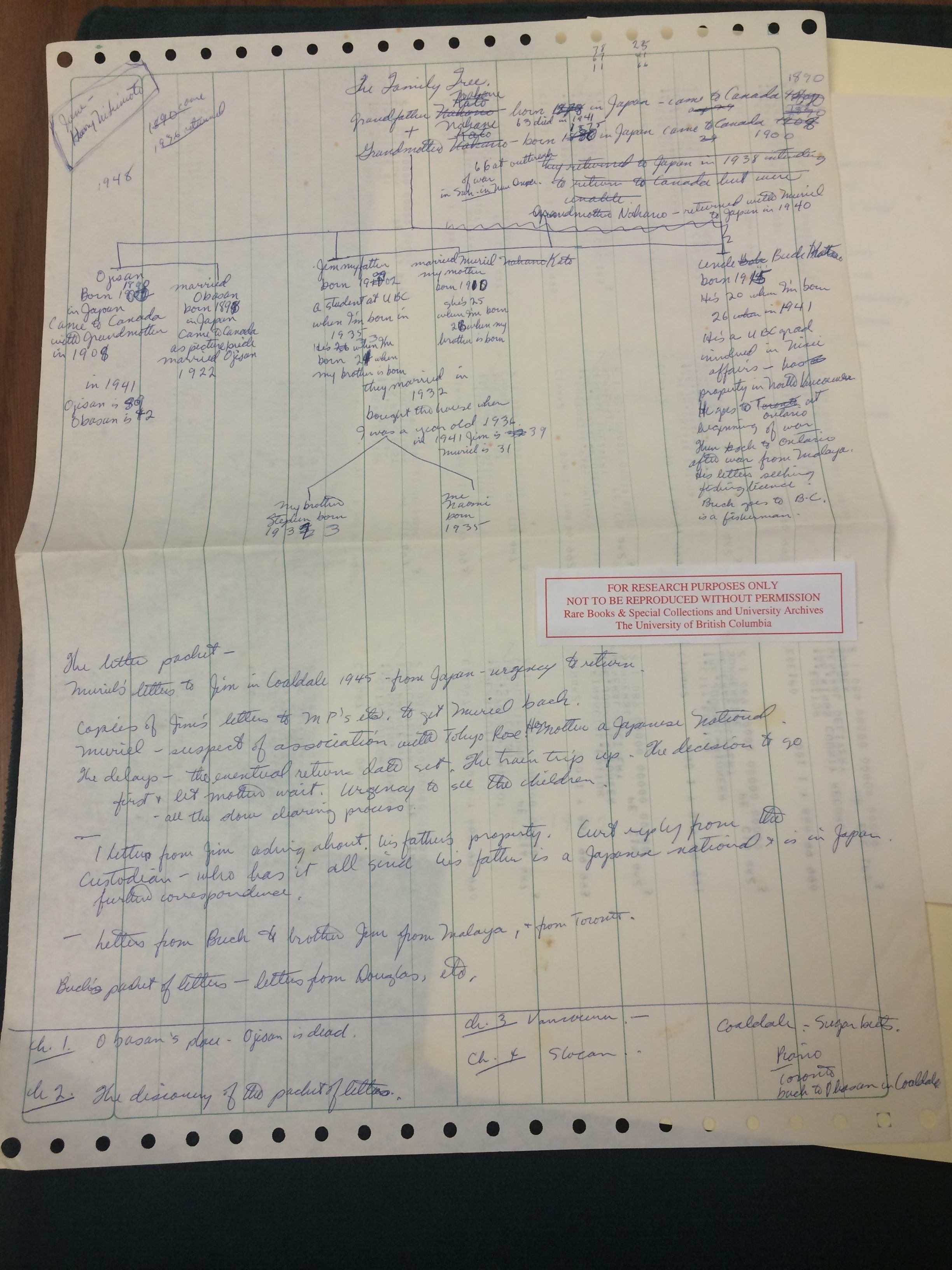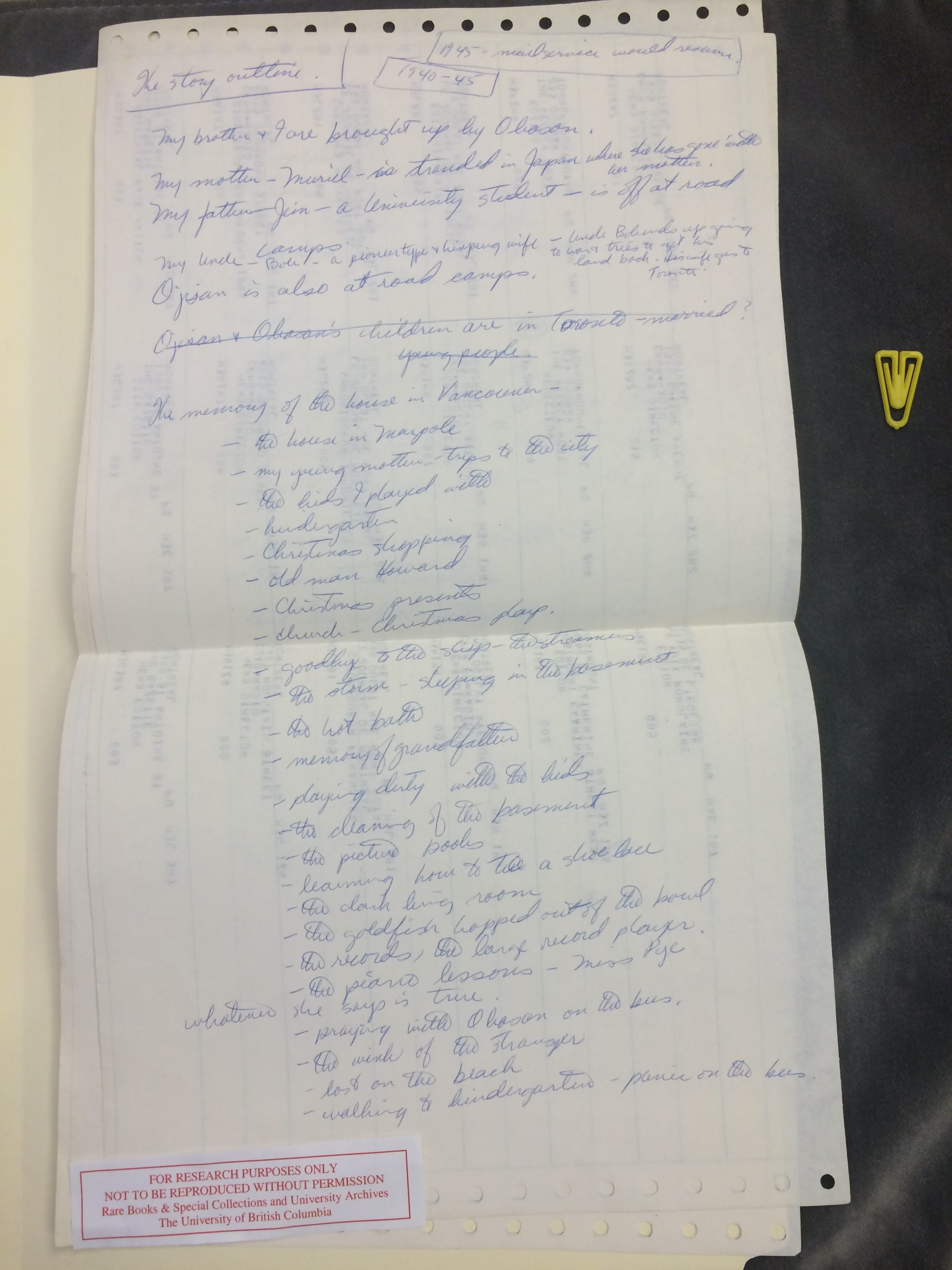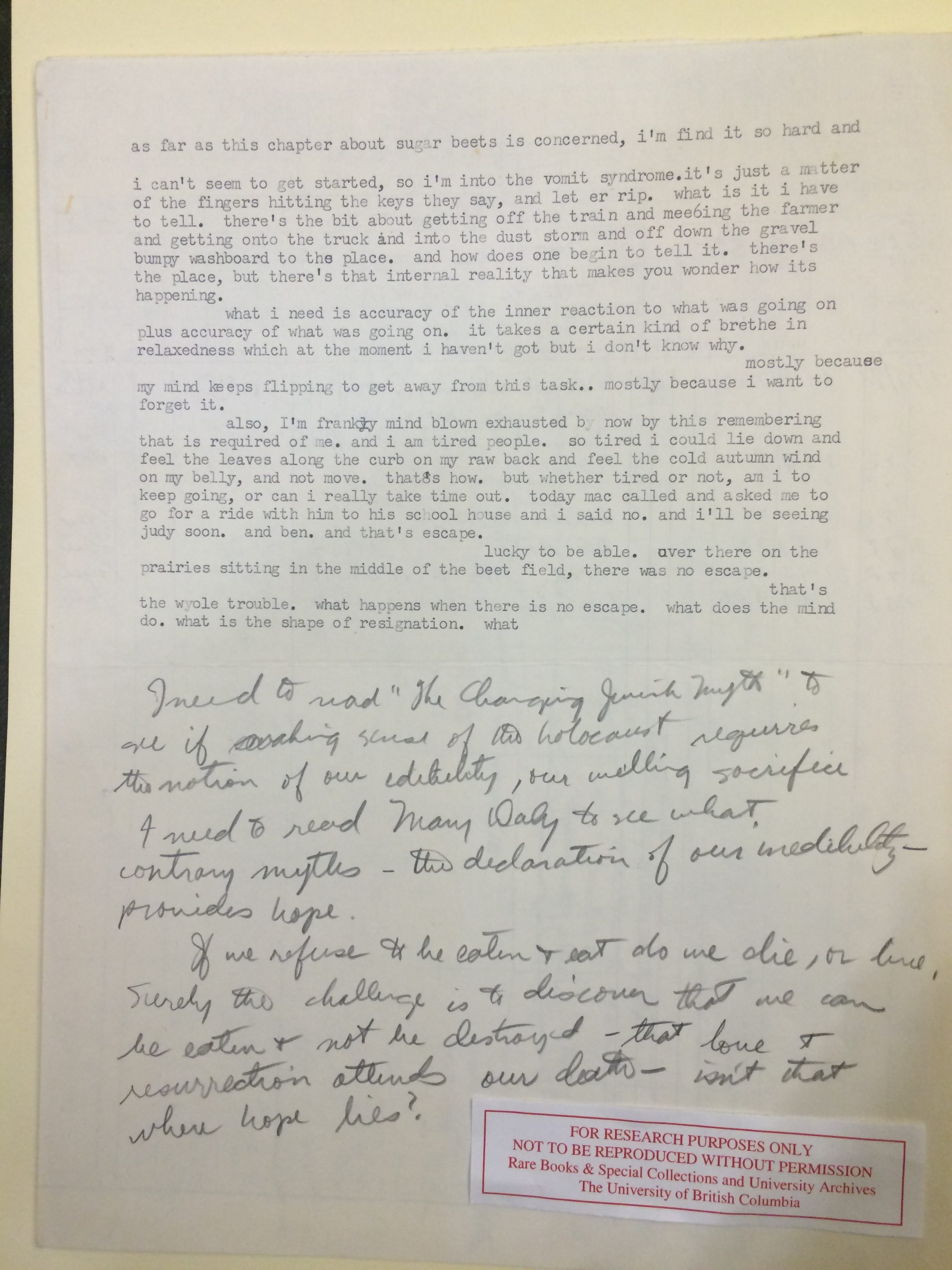
*crimple*
*crinkle*
*crumple*
BANG.
Oh, the sounds you make as you sit impatiently waiting for the ideas from your brain to miraculously appear on paper.
You have been staring at your blank screen or your blank paper for hours now with no inspiration, no luck and no great big mind-blowing ideas.
You feel a headache coming on and you look longingly at your bed for comfort and serenity.
Sleep? Yep… that sounds like a pretty good idea.
zzzzzzzzzzzzzzzzzzzzzzzzzzzzzzzzzzzzzzzzzzzzzzzzzzzzzzzzzzzzzzzzzzzzzzz
Have a case of writer’s block?

Don’t worry.
The good news is: even the greatest authors out there have been through it.
Joy Kogawa, Japanese Canadian poet and novelist, is best known for her award-winning novel: Obasan, a novel that has become an essential reading for the nation. The Literary Review of Canada has ranked this novel as one of Canada’s 100 Most Important Books. Through writing this extraordinary novel, Kogawa has educated youth and adults all over and has helped redress a very dark and often ‘forgotten’ part of our history. Kogawa writes about her experience during the Second World War; being interned with her Japanese-Canadian family and expressing the suffering, the pain and the hardships that she faced growing up.
After visiting the Kogawa Fonds at the Rare Books and Special Collections section of the Irving K. Barber Learning Centre at UBC, I uncovered some of Kogawa’s very first drafts and brainstorms of her novel: Obasan. It is evident in her old notes that she, too, experienced writer’s block-just like any one of us.

On this paper, Kogawa creates a family tree to trace back and learn the connections in her family.

On this paper, Kogawa writes a very messy bullet point list on the back of a scrap mailing paper of the different memories she has of her childhood house in Vancouver.
Making this type of list is one of the strategies I use to get started on a paper, a story or even a blogpost such as the one I’m currently writing now. It’s neat to see that even the best of authors start at square one and use some of the same tactics that students such as myself would use in creating a written work.
 This paper was my personal favourite.
This paper was my personal favourite.
Kogawa knows that she must write this specific chapter about sugar beets but just can’t quite figure out a way to get started. Instead, she decides to just write whatever is on her mind, stating that she has the “vomit syndrome”. Kogawa also talks about how her fingers are hitting the keys and she is “letting ‘er rip”. She talks about certain events she wants to include in this chapter but doesn’t know how to begin to piece together the details of the memories onto paper. She writes that her writer’s block is occurring “mostly because [her] mind keeps flipping to get away from the task… mostly because [she] wants to forget it”. She writes that she is exhausted from digging up and remembering her past.
Finishing the little write-up with simply the word ‘what’, Kogawa really demonstrates the true state of an author’s aggravating writer’s block.
In honour of Joy Kogawa, I am going to sign off this blogpost with the same haphazard ending as her sugar beet write-up.
what.
Recent Comments